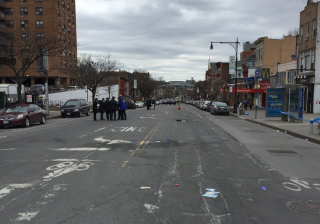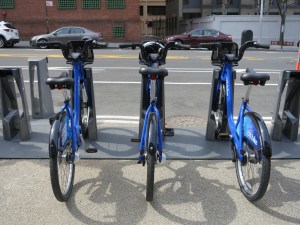Glen and Trottenberg Predict Growth for Citi Bike, Plazas, and Bike Lanes

Two key de Blasio administration officials sounded optimistic notes today about the expansion of the bike lane network, public plazas, and bike-share.
While bike infrastructure and public space projects haven’t been high-profile de Blasio priorities, Deputy Mayor Alicia Glen and Transportation Commissioner Polly Trottenberg indicated that they intend to make progress on both fronts.
Speaking at a Crain’s real estate forum today, Glen said initial investors in Citi Bike are satisfied, despite the program’s financial troubles, and that more private financing may soon be secured to help the bike-share network expand:
Ms. Glen said that she is in the process of working with an investor team to infuse more capital into the bike share program and “get it back on the road.” There are no plans to include public funding for the program in the 2015 capital expense budget, she said.
“Citi Bike has fundamentally changed the gestalt of lower Manhattan and parks of Brooklyn,” she said. “The mayor and I are fully committed to seeing the program expand.”
Meanwhile, Trottenberg told a New York Building Congress forum today that the challenge for DOT is keeping up with requests for pedestrian and bike improvements. Kate Hinds at WNYC reports:
“Now, my line is essentially ‘demand exceeds supply,'” said Trottenberg. “I have so many folks all over the city — elected officials, community groups, community boards — coming to me and wanting more bike lanes, wanting bike share stations, wanting plazas, wanting us to see what we can do to make their neighborhoods more livable, more walkable, and more inviting…part of my challenge now is coming up with the resources to meet the demand.”
Trottenberg said one emphasis of the plaza program will be to reach neighborhoods without well-financed Business Improvement Districts. Currently, the city relies heavily on BIDs to maintain and program plazas, but BIDs tend to be strongest in well-off neighborhoods. The non-profit Neighborhood Plaza Partnership launched last year to help plazas succeed in less affluent communities that may not be able to support a BID.





